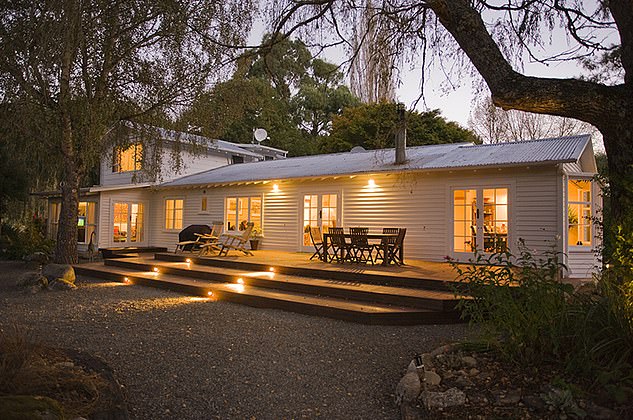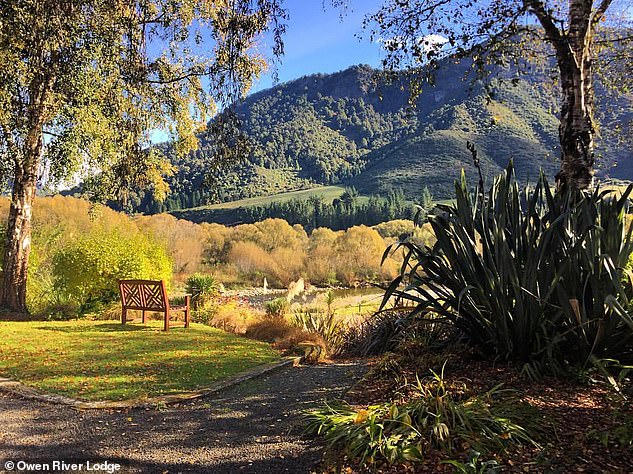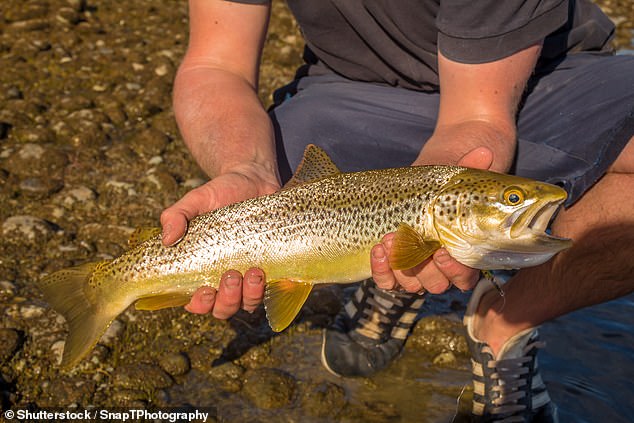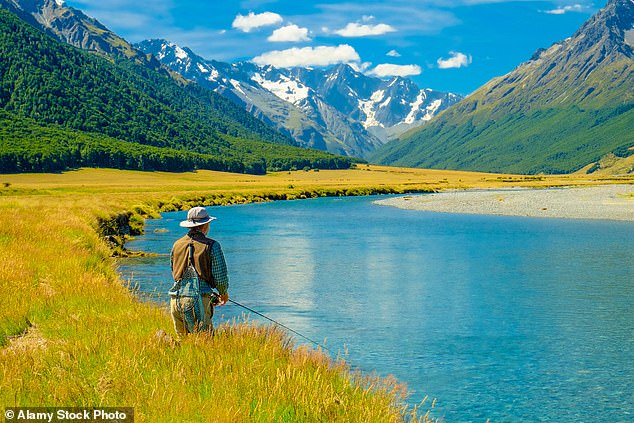The rotor blades are deafening as our helicopter plummets over a rocky outcrop next to the Mokihinui River.
This remote backwater on New Zealand’s South Island is a difficult two-day hike from civilization and is infested with bloodthirsty sandflies.
Cut off from communication with the outside world, even the most optimistic travel agent would say it’s a tough sell.
However, this beautiful location strikes a chord with anglers hoping to catch one of the largest and most difficult species to catch: the brown trout. Reserved and suspicious, the salmo trutta has a reputation for being a cunning and difficult fish.
Brown trout are widespread throughout the world, but thanks to the abundant rainfall in this area in the north of the island, the fresh, unpolluted waters make the region extremely special for anglers.
Spectacular: The fresh, unpolluted waters of New Zealand’s South Island make the region an extremely special place for anglers to catch brown trout.
Landing a 10-pound trout is almost an everyday occurrence for guests at Owen River Lodge, one of the most famous fishing resorts in the world.
On the edge of Kahurangi National Park, this intimate property is a four-hour drive from Christchurch International Airport. Each wall is filled with photographs of happy fishermen holding a prize. The record is 14.5lb (a 2lb tiddler is a good weight on most British rivers).
Founded 20 years ago by fly fishing legend Felix Borenstein, it has just been acquired by US-based Eleven Experience.

Jeremy checks into Owen River Lodge, ‘one of the most famous fishing resorts in the world’

Owen River Lodge was created 20 years ago by fly fishing legend Felix Borenstein
My fellow guests are experienced fishermen and women who have crossed continents in search of big fish. But can the expert guides at the lodge ensure that a beginner like me can also get something amazing?
As the helicopter disappears over the gorge, the chirping of paradise shelducks and gray warblers are all that disturbs the peace. Before unpacking our fishing gear, health and safety requires that guide Chris Williams show me how a satellite phone works, a sobering reminder of our remote location.
I don’t know a clinch knot from a triple surgeon, so while Chris saves time tying my line and wet fly (designed to sink into the river bed where trout feed), he also explains the intricacies of sight fishing.

Owen River Lodge is located on the edge of Kahurangi National Park, a four-hour drive from Christchurch International Airport.
Instead of casting from the shore, I’ll walk along the river, stalking the fish your trained eye sees upstream.
“You can actually see the fish you want to catch when you sneak up behind them,” says Chris. ‘The skill is to cast right in front, tempting the fish to take your fly. They are cunning; Sometimes all you have is a chance.
Brown trout are prolific in New Zealand, but are not a native species. They were introduced 150 years ago from Tasmania and originated in the tributaries of the River Thames.

Jeremy reveals that brown trout originated in the tributaries of the River Thames
In the days before refrigeration, two boxes of fertilized eggs were shipped from London on the passenger ship Norfolk, stored in blocks of ice and covered in moist moss.
The water is cold as I scramble up a slippery rock assault course, determined not to drop the expensive graphite rod I’m carrying into the river. I wear heavy wellies and special boots, plus plenty of insect repellent.
Time and time again, a slight headwind causes my featherweight fishing line to veer off target and the wily fish disappears in an instant.
As the day goes on, we see dozens more, and as my casting improves, I start to feel some bites.
Frustrated at still not being able to catch a fish, Chris finally spots a trout downwind and just a short cast away.
On the third try, a floating wool indicator tied to my line disappears below the surface and I strike.
This is just the beginning of a five minute duel, as the trout dart downstream I let the line come off the reel so the trout can swim to exhaustion.
It is vital to keep the bend of the rod and line taut, but the trout are putting up quite a fight. Finally, I start circling while Chris waits next to me with a landing net.
It’s an exciting time, especially for a beginner like me.
The 4-pound fish would make a delicious dinner, except New Zealand operates a strict “catch and release” policy. The rule ensures that brown trout are not overfished and continue to thrive, so they will live to fight another day.

